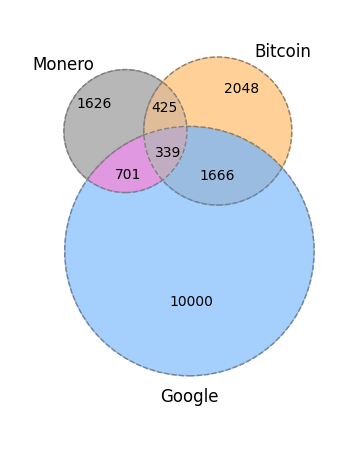I wrote a couple posts last month about the seed phrase words used by Bitcoin and other cryptocurrencies. There are 2048 words on the BIP39 list. Monero uses a different word list, one with 1626 words [1]. You can find Monero’s list here.
Why 1626 words?
It’s not hard to guess why the BIP 39 list has 2048 words: each one encodes 11 bits of a key because 211 = 2048. It’s not as obvious where the number 1626 comes from. It is the smallest value of n such that
n24 > 2256
Monero uses a seed phrase of 25 words, but the last word is a checksum, so there are 24 words which are used to create a 256-bit private key.
Distinctiveness
I criticized the BIP 39 list for being less than ideal for memorization because some words are similar phonetically, such as angle and ankle. Other words are harder to remember because they are not vivid nouns or verbs, such as either or neither.
The Monero list has 200 words that differ by one character, compared to 484 for BIP 39.
But as with the BIP 39 list, some of Monero’s words are similar and not easy to visualize, such as adapt, adept, and adopt.
Prefix uniqueness
One nice feature of the BIP 39 list is that the first four letters of each word are distinct. So if you’re typing the words, autocomplete can fill in the rest of the word by the time you’ve entered four letters.
Monero goes one step further: all words are uniquely determined by the first three letters.
Overlap with other lists
Only about 1/4 of the words on Monero’s list. And most of Monero’s words are not in Google’s list of 10,000 most common words.

Related posts
[1] Monero has other ways to convert words to keys. The way described here is now known as the Legacy mnemonics. The new Polyseed algorithm uses the BIP 39 word list.
The post Monero’s seed phrase words first appeared on John D. Cook.